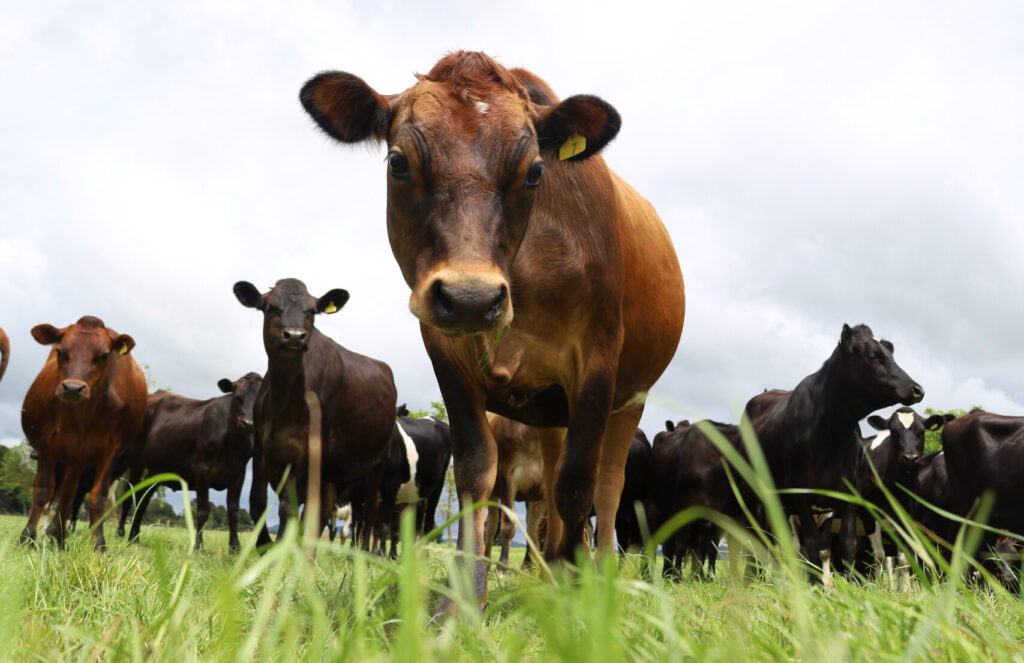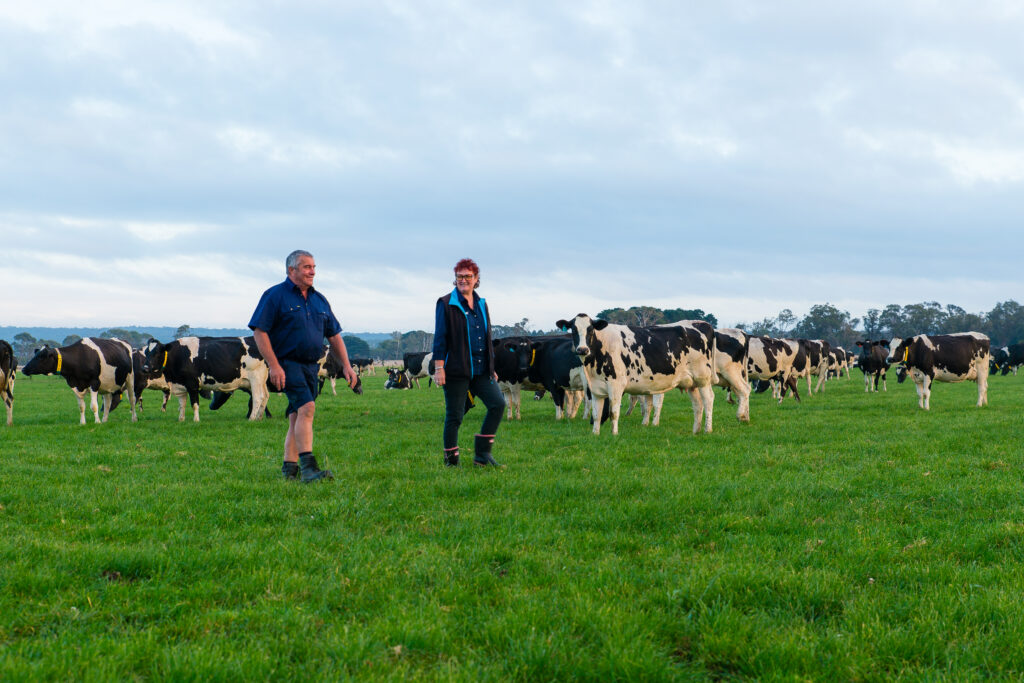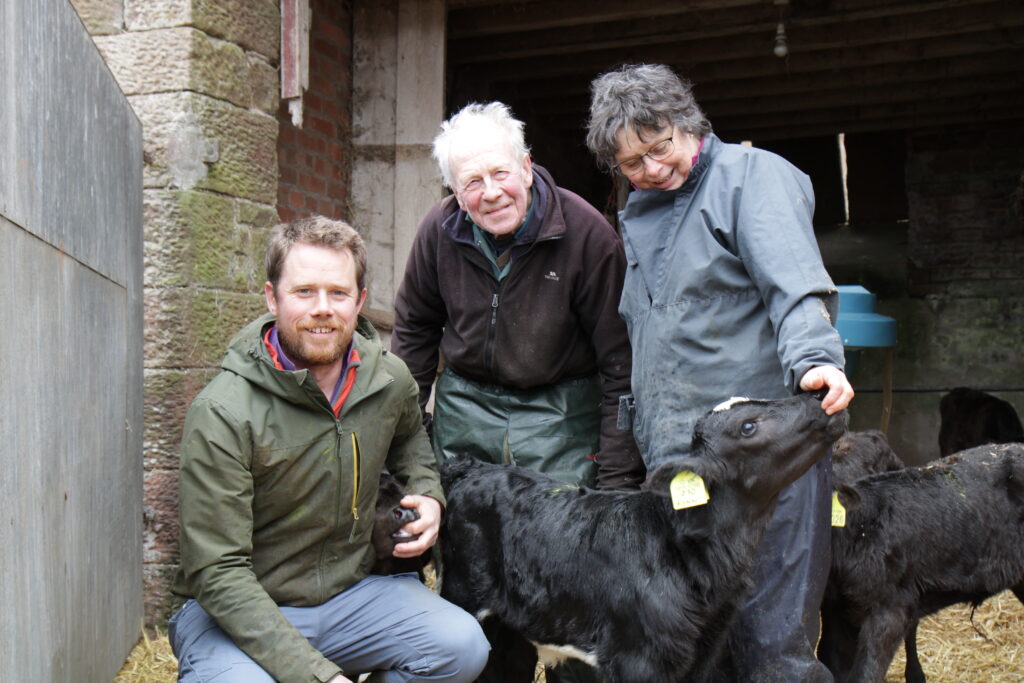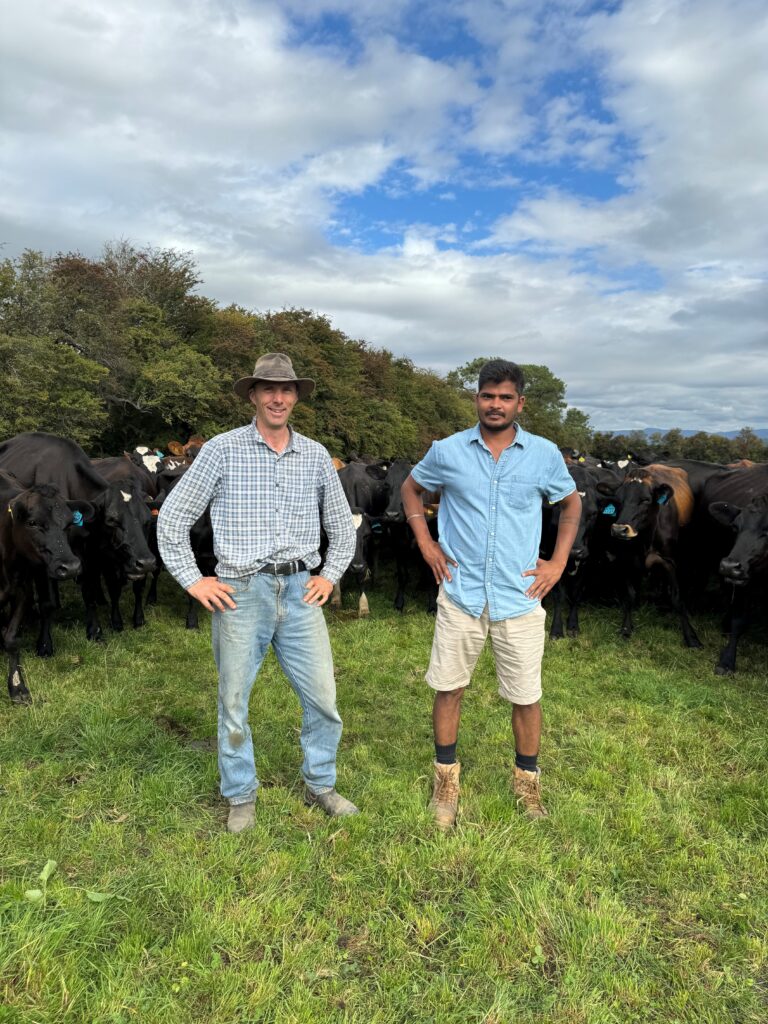In Silvania, Goiás, Brazil, long-time LIC client the Kiwi Group is prominent in milk production. They recently achieved 11th position on the Top100 largest dairy producers in Brazil list in 2022, with an average production of 42,295 litres per day. But their focus is not just on production. In addition, the group have implemented many sustainable measures in pasture production, with a paddock rotation system and herd made of crossbred and Jersey animals.
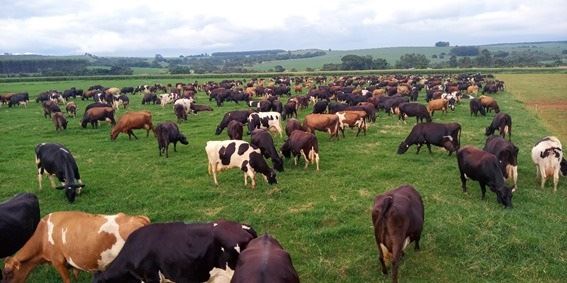
After working on dairy farms in New Zealand for 25 years, Owen Williams travelled the world in search of land to produce milk. In 2007, already in Brazil, together with Beatriz dos Reis, he bet his chips on a large-scale milk production project. It came with pasture-based feed and high expectations of profitability.
Now about to complete 13 years of production, the Kiwi Pecuária farm, belonging to a group of New Zealand investors, together with the Capoeira Farm, form the Kiwi Group, a reference in the sector for its search for excellence.
Recently, the Kiwi Group went through a succession plan. Azael Rössler, Leonel Barbaresco and Ilo Vieira manage the farm. They maintain the simple processes, milk quality, professional ethics, safety at work, sustainability of the operation, innovation mentality, respect for the environment and animal welfare as the basis of their business.
In addition to the Kiwi Group participating in the Sustainable Practices Program (PPS) with the dairy company to which Kiwi Pecuária supplies, seeking innovation, it joined the Net Zero program, a pilot project offered by the company. The participation in the project was a stimulus for the adoption of sustainability strategies on the property. As a result, they rethought the property’s purpose and made investments in initiatives.
“Our mission is to have a milk production model that preserves the environment, reducing our effects on climate change, energy and water consumption and preserving our biodiversity,” says the Group’s administrator and Veterinary Doctor, Azael.
Among the sustainability-oriented practices adopted at the farm, Azael highlights regenerative agriculture. “We seek to use regenerative agriculture. As a result, we have a diversity of intercropped forage species, focusing on the best use of the soil and available resources, without degradation”, also pointing out the use of manure for fertilization and reduction of chemicals in pastures. “In the pasture system, we have the enrichment of soil organic matter carried out by the animals themselves.

In recent years, the Kiwi Group observed a great improvement in the soil, contributing to a lower use of chemical fertilization. Some surplus manure ends up destined for silage production areas as well.”
The veterinarian emphasizes that since the beginning of the Kiwi Group, they have sought to apply sustainable practices. The rotational pasture system improved the soils in macro and micronutrients and organic matter, after 7 to 8 years of adoption.
“There are several benefits credited to regenerative agriculture techniques on the Kiwi Pecuária farm, such as the fact that it manages to reduce the cost of production, which highly impacts the cost of the diet. Therefore, with the improvement of the soils, we have achieved full development of pastures in the dry and rainy season with the use of central pivot irrigation,” he said.
The farm’s manager adds that the environmental returns benefit the farm when they adopt sustainable practices.
“The most motivating factor is to observe the return of the environment itself to the farm when sustainability is practiced. For example, the increase of water so that we can irrigate in critical periods or the improvement in the soils from our own animals for better development. This is how we manage, through various strategies, to produce such a noble food for society that is milk. We believe that every production system needs to be sustainable.
Our focus is strongly on soil management, as being healthy and not being degraded. Over the years, it kept us competitive in the milk production sector, with less dependence on the use of external inputs.”
Looking to the future, Azael says he wants to increase the practice of regenerative agriculture with new cultivars.
“We are thinking of continuing with regenerative agriculture, focusing on new and different cultivars that can adapt to the Brazilian Midwest – nitrogen-fixing species to reduce or eliminate the use of nitrogen for the cultivation of our pastures.
Evolving towards a renewable energy source for farms, by biodigester, photovoltaics, and other sustainable practices are also in our future plans, ” he concludes.
This article was recently published in Brazil publication, MilkPoint
